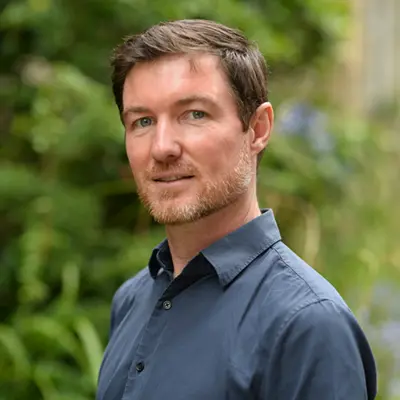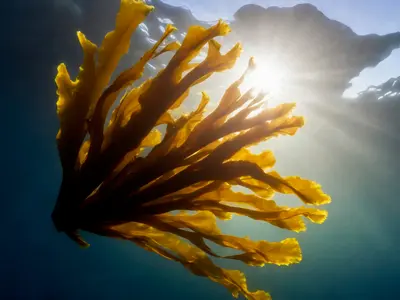
François THOMAS
Marine bacteria with a sweet tooth
Microorganisms have colonized virtually all environments on Earth, and feature an incredibly diverse array of metabolic capabilities. Due to this extreme versatility, they appear as key players of biogeochemical processes, controlling fluxes of organic matter and energy in their respective ecosystems. To fully understand this contribution to the oceanic carbon cycle, we need to consider all substrates potentially available for marine microorganisms. However, unlike for small organic molecules, there is a knowledge gap on the microorganisms that can use the large, highly diverse, often complex pool of marine polysaccharides and the metabolic pathways those microbes utilize.
My research focuses on bacteria interacting with macroalgae, one of the main sources of polysaccharides in coastal regions worldwide. Using a combination of approaches, I investigate the identity and distribution of bacteria involved in the degradation of macroalgal polysaccharides, their specific enzymes, as well as the utilized metabolic pathways and their regulation. This strategy has already led to the discovery and biochemical characterization of the first marine operons responsible for alginate degradation, and revealed that they had surprisingly been transferred to terrestrial and human gut microbes.
Specifically, my research questions are:
- Who are the polysaccharide-degrading bacteria (PDBac) in marine environments? How do they interact?
- How do changing habitats, spatial heterogeneities or temporal variations in polysaccharide availability shape the community assemblage and influence the activity of PDBac?
- What are the genes involved in polysaccharide degradation and how do they evolve? Are they shared between microorganisms performing similar functions in contrasted niches?
- What proteins do these genes encode? What are their biochemical functions in the metabolic process?
- What are the regulatory events, controlling the expression of these genes and/or the activity of the proteins, to fine-tune the microbial response to the available substrates?
This research framework can help deciphering the yet largely unknown catabolic processes of algal polysaccharides by marine bacteria. By revealing microorganisms and pathways involved in polysaccharide degradation, it will further our fundamental understanding of organic matter recycling in marine environments, with expected discovery of new metabolic pathways and regulation strategies.
